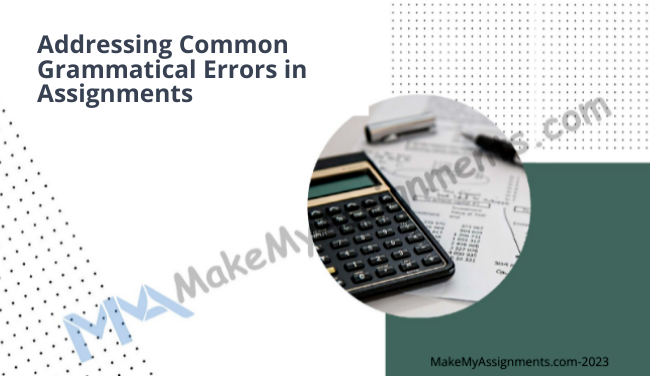
How can you improve your Persuasive writing skills?
Persuasive writing signifies the reasons and examples that are used to persuade an action or thought. It is very important for a student to understand how to improve the persuasive writing skills in order to achieve a successful academic career. If you want to become a good persuasive writer, you need to examine your point of view clearly, along with relevant reasons and peculiar examples that can support it. Students need to have a defined set of skills to become efficient in persuasive writing. And for this, it is essential for them to know various formats, styles, and techniques of writing.
While following the guidelines and format, the writer should be able to write in an engaging manner so that he can convince the reader easily to read the whole document. To build your understanding of the persuasive writing techniques, you should always prefer to read extensively and practice daily.
Importance of Persuasive writing for students
Persuasive writing technique is an effective and brilliant way that makes your writing look impressive. In addition, it helps you to know about the passion of a student. Furthermore, it gives you an opportunity to learn and discover more on some topic or subject.
Practicing and excelling in the persuasive writing technique will help students in improving their overall writing skills. If you follow these techniques, it can enhance your writing structure and style of research. Further, it also assists them in finding and establishing rational opinions and conclusions based on evidence.
Proper usage of Persuasive words
You need to persuade the readers with the help of persuasive words and phrases and avoid repeating the same terms. Here, the writer tends to draw the attention of the reader by making correct and impactful use of words. Students need to have knowledge of the impactful usage of persuasive words to write persuasively. Writers often use a variety of persuasive words to attract the attention of readers like, for instance, to illustrate, because, on the one hand, instantly, on the other hand, similarly, in the instance of, etc. You can provide your students with a list of persuasive words to help them write persuasively.
Persuasive writing techniques
Persuasive writing plays a crucial role in writing an impactful paper. So it becomes important for a writer to have thorough knowledge about persuasive writing techniques. Writers are always concerned about how to draw the attention of the readers at the time of writing. Hence, the right selection of influential words is very important for them. While writing, you need to keep the reader’s expectations and perspective in mind, this will help you write persuasively.
To understand better, let us consider some of the persuasive writing techniques-
Attacks
In this, the writer tries to target the opponent or the opposite view. Persuasive techniques are sometimes used to insult or embarrass the opponent. For example, condemning a person who is judgmental about people based on race, religion, gender, or caste.
Clichés
This term is sometimes overused to the limit where maximum people of society easily understand it. For example, using the phrase like ‘It is not the destination that matters the most, rather the journey along the way.’
Colloquial language
This is commonly used to form a word or phrase that is being used as an informal language. It is largely used while speaking rather than writing. For example, ‘this incident completely freaked me out’ v/s ‘this incident scared me out.’
Emotive language
This language is purposely used to draw a sentimental or emotional response from the audience. For example, ‘In order to avoid this jeopardy, we immediately need to do something.’
Evidence
Under this language, three types of evidence are used- Expert opinion, Anecdotal, and Statistical.
Formal language
This language is commonly used to create an impression about the writer being very knowledgeable. This style of language eradicated the use of any emotional content from the writing. It is considered to be a more wide and elite style of writing.
Emphasis
TO grab the attention of readers, the writer employs three types of emphasis- Cumulation, Repetition, and Alliteration.
Rhetorical question
Instead of receiving an answer, questions are asked that give a dramatic impact or establish a point. The idea behind this style is not to answer, rather create an emphasis on a point. For example, ‘are we ready to give this future to our kids where there is no fresh air to breathe?’
Hyperbole or exaggerations
This style is used to express extreme exaggerations to make emphasis on a particular point. It helps you to get an emotional reaction from the readers. For example, ‘His sensibility is the size of a peanut.’
Generalizations
Statements under this category are taken in the form of specific cases and are understood in terms of stereotypes. They are the most commonly used form of persuasive writing techniques.
Hypothetical evidence
This type of style includes the statement starting with ‘what if.’ For example, ‘what if nothing remains tomorrow?’
Logic and Reasoning
Under this style of writing, a relevant argument is developed along with the evidence used.
Sensationalism
This includes such stories that aggravate interest or create excitement among the masses, at the cost of accuracy. It makes the reader believe that the point is dramatic, crucial, important, and severe.
Pun
Witticism gives other possible meanings and reasons to a word or fact. As there could be words that sound similar but have different meanings.
Graphs and diagrams
Visuals are considered to be one of the best persuasive writing techniques. You can support your statements with the help of graphs and diagrams.
Jargon
They are considered to be a collection of exclusive words that are commonly used by professionals. For example, ‘you require a script before you get the medicine.’
Humor
It involves the use of jokes, puns, and sarcasm to write persuasively in order to oppose or dismiss views and give an engaging influence on the readers. The quality of amusing with comic sense is one of the most successful persuasive writing techniques.






